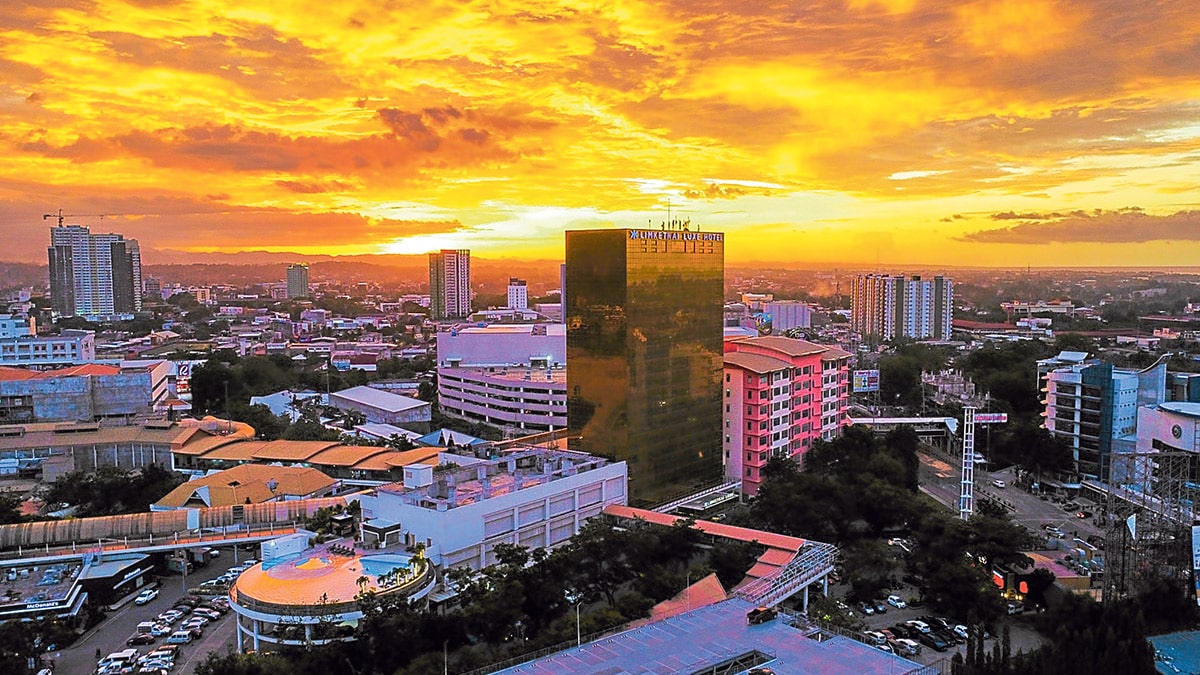
HOPEFUL The setting sun creates a splendid sky scene over Cagayan de Oro City in this undated photo. Amid an expanding economy, Mayor Rolando Uy sees a big role for the government in getting thousands of families out of poverty. —Cagayan de Oro City Information Office photo
CAGAYAN DE ORO CITY, Philippines —Mayor Rolando Uy here vowed to institute more measures to further democratize wealth and fight poverty amid the city’s remarkable economic rebound coming out of the pandemic.
In his public address to mark the city’s 74th founding anniversary on Saturday, Uy stressed the need for delivery of more social services, as many families were still struggling to regain their economic footing and hence “longed to receive aid from the government.”
The increased revenue that the local government will get from growing business activities will go to expanding social services, especially to those at the lower rung of the income ladder, “in the spirit of social equity,” Uy said.
READ: Rediscovering Cagayan de Oro
“In every development activity that we will initiate, there will always be (a) preferential option for the poor,” Uy pointed out.
According to data from the Philippine Statistics Authority, the city’s economy grew by 9.4 percent in 2023, or by P28 billion, to P261.78 billion.
READ: ‘City of Golden Friendship’ a rising metropolis
Tempered optimism
Uy said the growth resulted in the rise in disposable income of families and individuals in the city, which, in 2023, had a per capita gross domestic product of P343,936, making it the second richest city in the country outside of the National Capital Region (NCR), next to Baguio.
The city, with its over 700,000 population, contributes at least 28 percent to the total economic output of the Northern Mindanao region. It is also a magnet of migrants, mainly from various parts of Mindanao, who venture for greener pastures.
Tourist arrivals in 2023 reached 775,024, an increase of around 13 percent, city data showed.
Of the 30,962 business permits issued in 2023, 5,414 were for new enterprises. This increased influx of businesses contributed to the P5.6 billion in local taxes collected by the city government in 2023, the highest so far in its history.
But amid this rosy picture, Uy said there is still a big challenge in fighting poverty, as the city’s count of poor families shot up to 11 percent between 2018 and 2021. This means about 22,600 families live below the poverty threshold, about 15,000 of whom are enrolled in the national government’s conditional cash transfer program.
“With additional aid from our parallel poverty alleviation programs, some 3,000 families were fished out of their destitute situation,” Uy said, adding that more can be achieved with greater investments in antipoverty programs.
Currently, an average of 350 people troop to City Hall every week during People’s Day to seek assistance. About 43 percent of them seek health-related help, 20 percent want help in landing a job, 18 percent seek direct cash aid, and 19 percent want help to settle their regulatory violations, especially against traffic rules, according to city data.
Uy said the city government would also pay attention to the key role of education and health services in alleviating the poor people’s conditions. In the coming school year, the local government will be supporting 15,194 tertiary scholars, 19 of them taking up law and 12 in medicine, said the mayor.